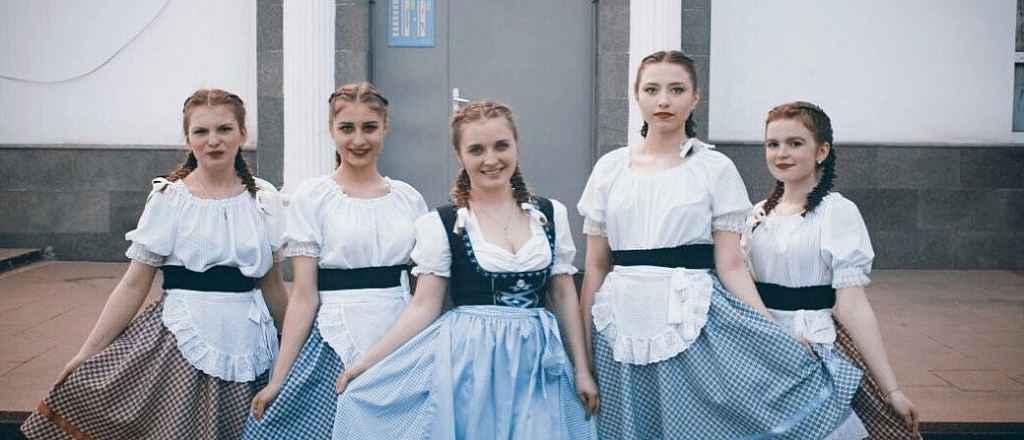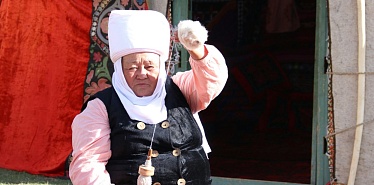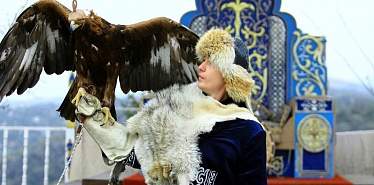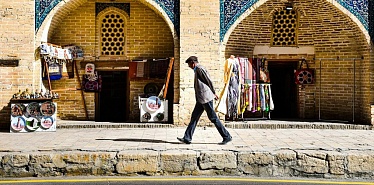Alena Rener, 21, hometown — Astana, student, a member of the youth club “Diamant” and youth worker in the Public Association “German Society Revival” of Astana and Aqmola region
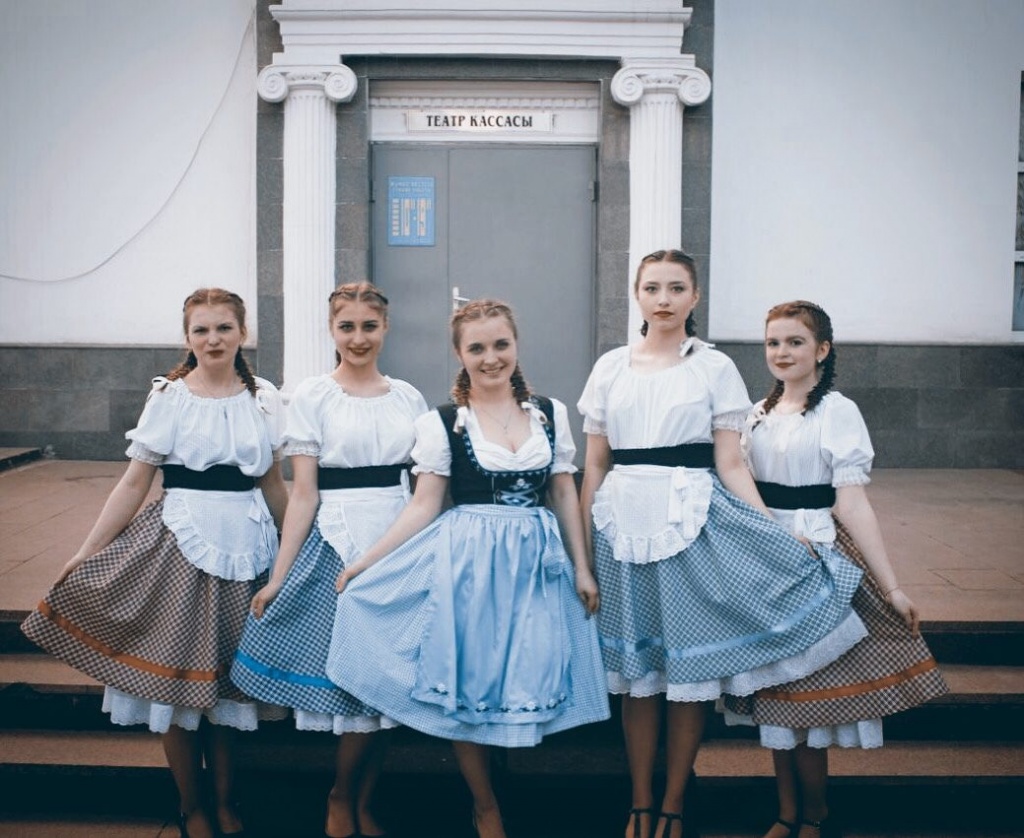
My family belongs to the Dutch Germans by origin. Before, they lived on the border with Holland. Then, at the invitation of Catherine the Great, when she issued the manifestо, they moved to Russia. During the Second World War, they were deported to Kazakhstan. In Kazakhstan, our family lived in a village. A part of my family stayed there, the other part moved to Astana.
I often go to Germany to various seminars and also for personal reasons. I stay connected with a big number of Germans not because I am a member of the association and youth club “Diamant,” but because I have many friends-Germans who live in other cities of Kazakhstan, Germany and Russia. Since we often organize various projects, we create a lot of space for communication.
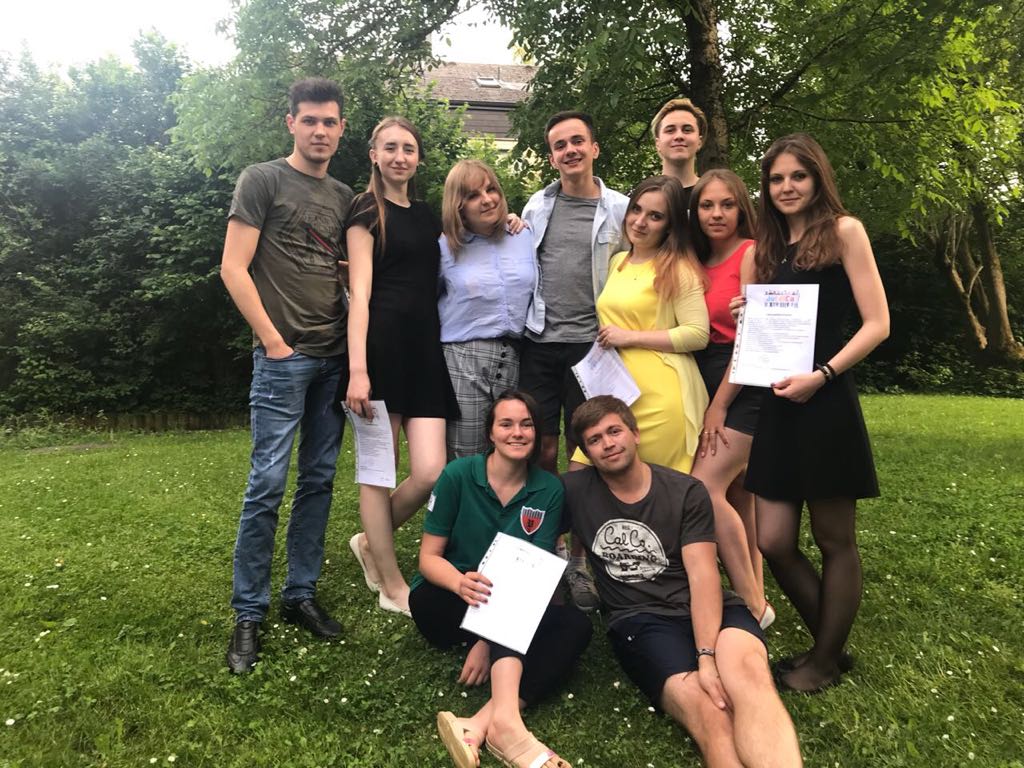
Amongst the similarities between Kazakhs and Germans is a dedication to the traditions and culture of their nations. Even we, while living in Kazakhstan, support our own traditions and Kazakhstani ones. We can say that we are multicultural.
I love walking along the embankment, especially now, when they built a new bridge. It happens that I leave the house and simply cannot recognize Astana. This makes me happy.
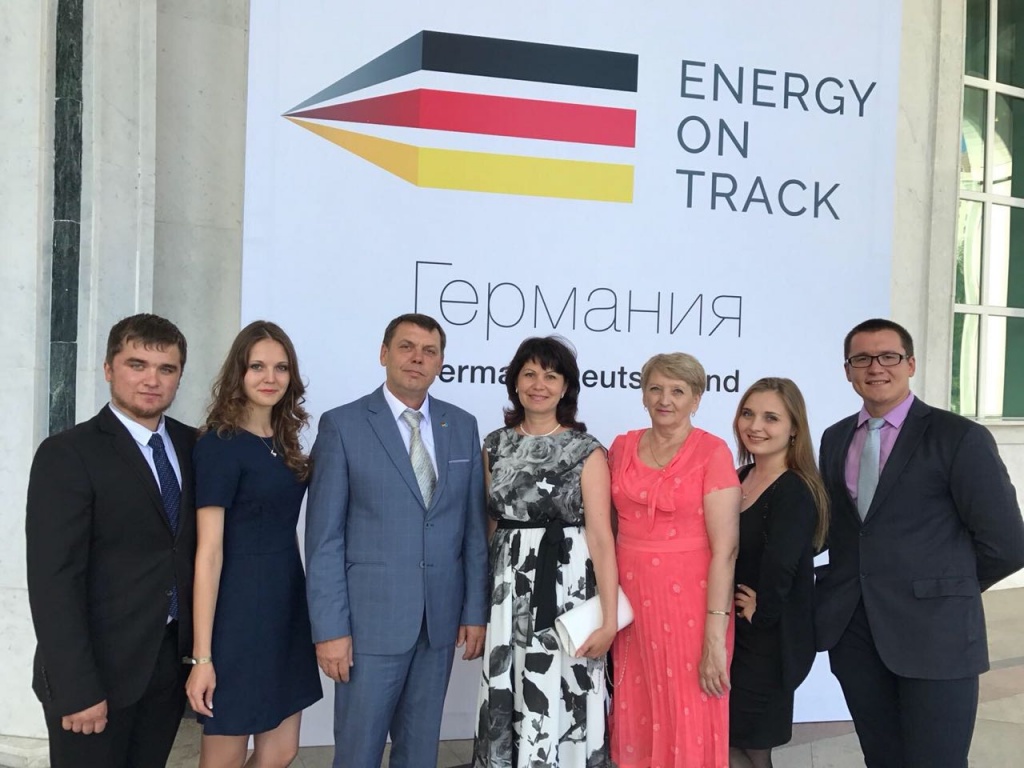
I do not plan to move anywhere else. I see my mission here, in Kazakhstan: “Grow where you are planted.”
Yevgenia Gizik, 34, hometown — Astana, a member of the family club “Familie Club” and of the Public Association “German Society Revival” of Astana and Aqmola region
My ancestors are Volga Germans. When Catherine the Great issued the manifesto, Germans could live in the Volga regions as immigrants.
My father was born in Kazakhstan in 1959 in Karaganda region. My uncles were born in Kazakhstan as well. Some time later my family moved to Atbasar, where my parents met. My mother is half Ukrainian and half Byelorussian. My grandmother, Byelorussian, came to Kazakhstan to cultivate virgin lands. She experienced war in Belorus, and the fact that her daughter was going to marry a German was unthinkable and unacceptable. She was against that. However, my parents won back their love, and two families eventually became friends.
In my father’s family, they followed German traditions and customs. Their great-grandmother spoke to them exclusively in German. It lasted until father’s older brother went to school. He faced some difficulties of being in a society, which language he does not know. Since then, everyone started to speak Russian in the family. When my father went to school, he didn’t face any problems. Nonetheless, previously, there were a lot of prejudices about Germans. Many people treated them negatively based on their national identity.
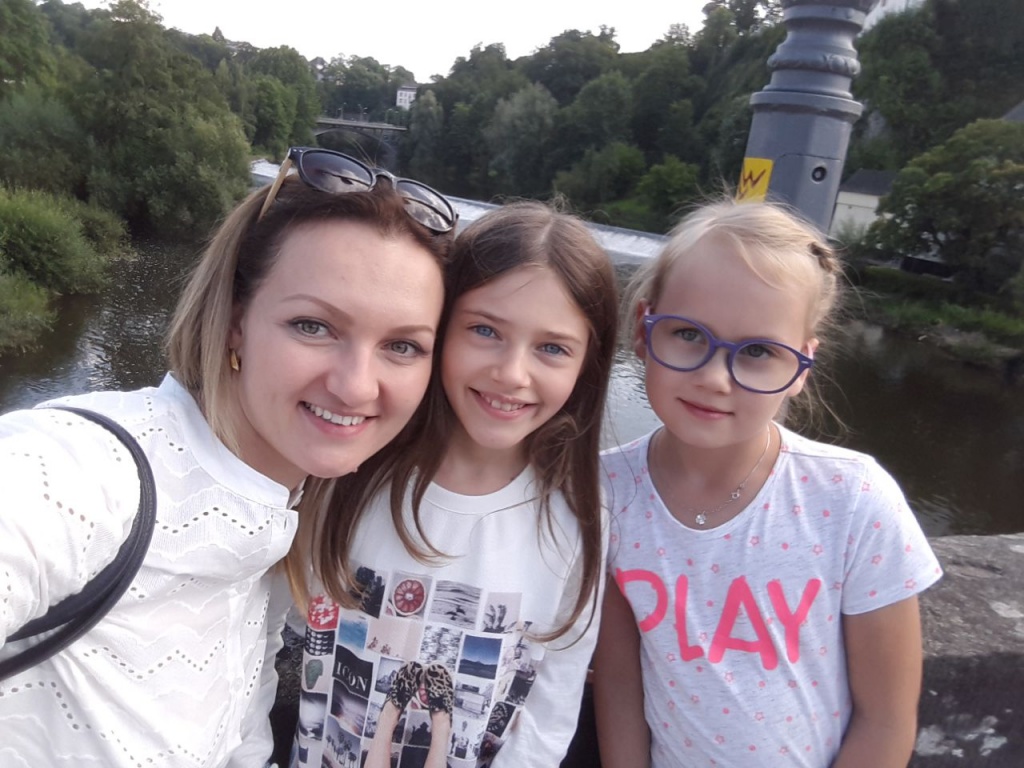
Many Germans lived in Atbasar before, while beyond its border there were entire German settlements. My Ukrainian grandfather lived in one of these settlements and spoke German very well.
I was also born and lived in Atbasar. I graduated from school there. In the history of our family there was a moment when all relatives moved to Germany. In the end of 80s and beginning of 90s, Germany opened its borders and let ethnic Germans to return to their homeland.
First relatives left in 1989. More than 10 families could leave at once. All families, including ours, filed the documents. However, my mom did not expect that it was going to happen so quickly and we would have to move in a year or two. There are two children in my mother’s family, her older brother studied in Russia and stayed there. She didn’t dare to leave Kazakhstan because she couldn’t leave her parents alone. When the documents arrived, my mom decided that she was not going to move. My dad supported her and we stayed in Kazakhstan. Our last relatives left in 1993-1994. I wanted to go to Germany because there wasn’t enough communication with relatives for me. But now I understand why my mother took such decision. I am happy with my life. I studied in Astana and worked in various banks for 10 years.
I always wanted to learn German, but there was no opportunity for that. I studied in an ‘experimental’ class and, starting from the second grade, we studied English five times a week. I went to German language courses only when I graduated from the university. My current level is A1.
When I and my husband had a baby, we decided to send her to the German gymnasium. Our daughter finished the third grade and we're learning the language together. My daughter goes to German community since she was three. There is a family club, holding various family events, and a choir studio. We try to foster her an interest in her native culture.
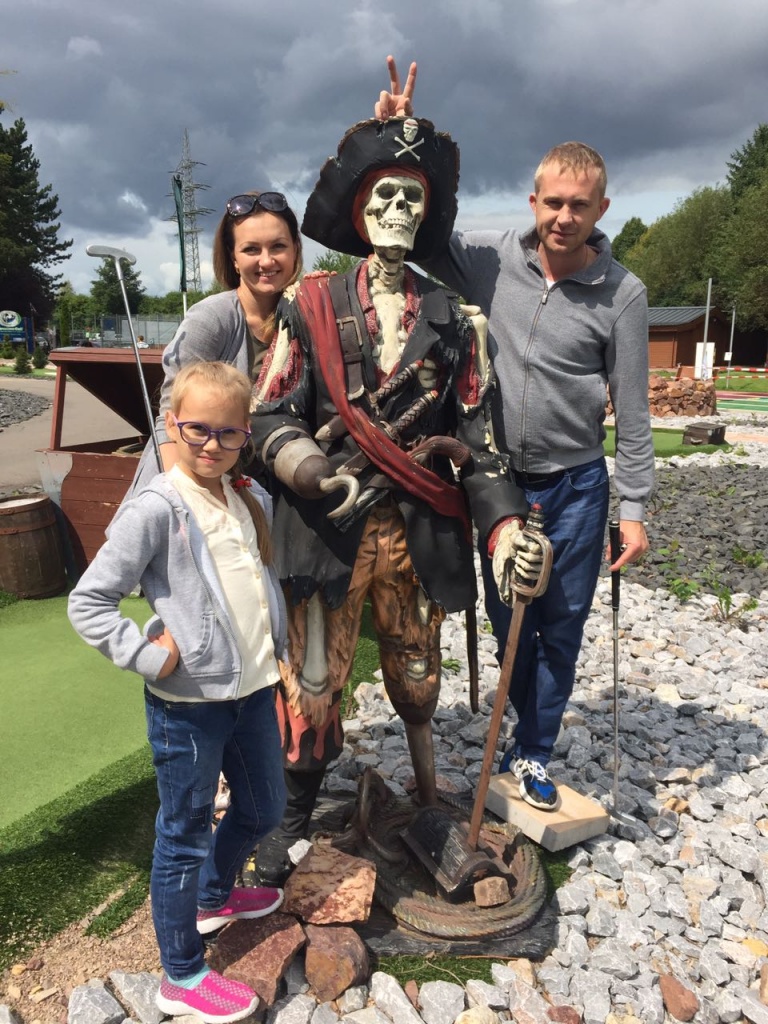
Our family, namely me and my brother, was lucky because we lived and are living in an environment where two Christmas, two Easter and Nauryz are celebrated. We follow both German and Russian traditions as well as we eat various dishes of German and Kazakh cuisine.
I appreciate that different nationalities are welcome in Kazakhstan and that there are no disputes. Nobody forbids me to be interested in my roots and my culture.
I was in Germany three times. I can say that there were some difficulties with the visa, but the last trip in 2017 was great. I, my husband and daughter went to the wedding of my sister. At the wedding there were about 130 people. For Germans, it is a lot. It is the same as if we had 800 people at our wedding.
In general, Germans are restrained and scrupulous. They are all calm and stay close to their families. And the actions are carried out clearly at a certain time, and no one detains anyone. The family business has been passed on from generation to generation for centuries.
Those relatives who come to Astana are struck by its architecture. They are amazed how quickly new buildings appear. My godfather comes almost every year and still does not stop being surprised. The Germans like our sweets, especially the chocolate “Kazakstanskii.” They love our fragrant tea and tasty meat. The Germans in Germany, when going to big celebrations, are preparing beshbarmak, and this is wonderful. They even do not have such products.
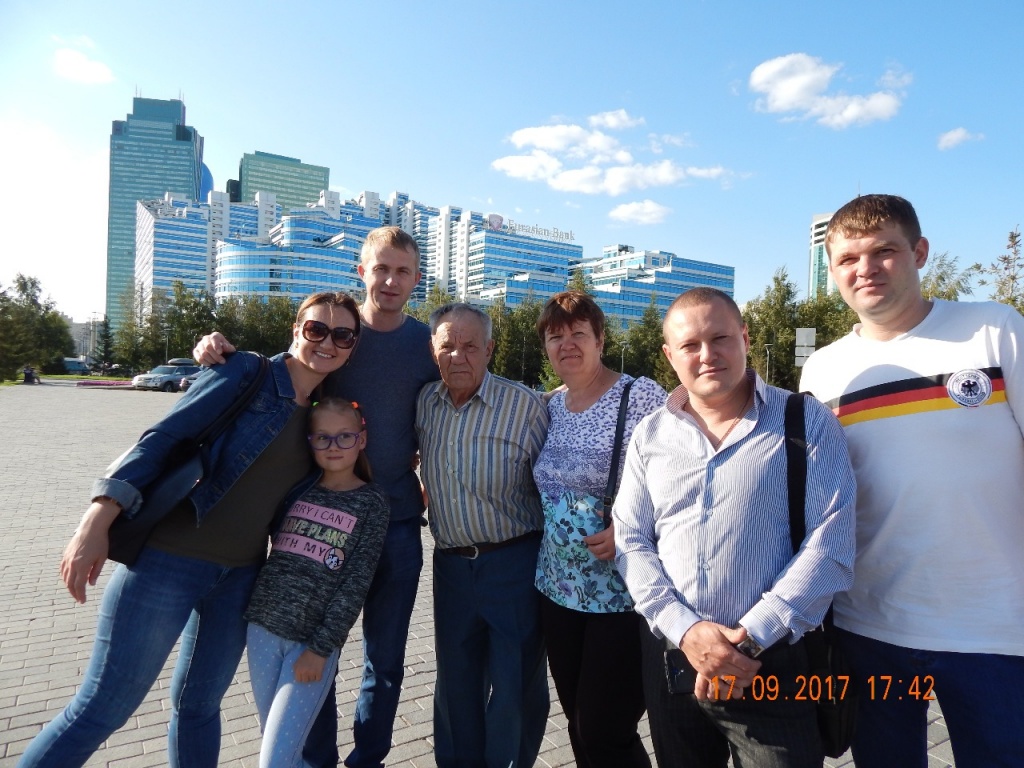
Every year Kazakhstan becomes more developed and improves a lot. We are growing and developing. Further I am planning to live in Kazakhstan as well.
Eduard Steinhauer, 23, hometown — Astana, an employee of KTZ Express, a KTZ Operator branch
My grandparents came to Kazakhstan after the Second World War. Residents of the most parts of Germany were divided by cities that belong to the territory of present post-Soviet space. They got to Kazakhstan, and, after Germany, it was quite cold there.
Difficulties appeared in many aspects: starting with the lack of clothing and money and ending with the absence of friends. It seems to me that when you are forcibly deported somewhere — it is a big hardship.
If we talk about differences in mentality, then the most of it is about upbringing. Germans are all strict. A child will have everything, but he must follow the set of rules. Despite his age, he will be treated as an adult and will be expected to behave like an adult. As soon as the child starts to speak, he will be told things that children can understand intuitively. It is difficult to spoil children in our families.
Kazakhs are hospitable. The Germans who left for Germany from Kazakhstan adopted this feature. Germans living in Germany are private. They are friends only with their families and clans.
I am not a member of any community, and all the Germans I communicate with are my relatives.
Astana is a wonderful city for me. It is full of many memorable places associated with my childhood and adolescence. For example, the embankment on the river Akbulak, where I had been rowing for four years, the park in front of the Museum of the First President, the Republic Avenue, or parks near the Pyramid and EXPO. There are not many green places in Astana, therefore these parks are highly valued.
I cannot help but love Kazakhstan. This is my homeland. I like Kazakh food, culture and people. Everybody easily finds a common language with each other. I love kazy, beshbarmak and horse meat.
I do not want to move anywhere else. In the near future I would like to live in Kazakhstan. And then — who knows how everything is going to turn out.









